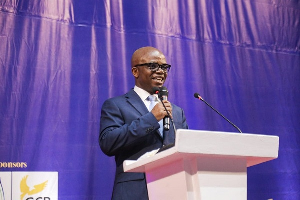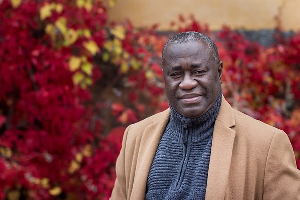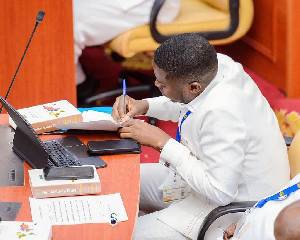Dr Stephen Amoah, Deputy Minister for Finance has called on African countries to focus on the development and sustainability of SMEs and Start-ups for a sustainable future for Africa.
“I believe that together we can build a future where African startups and SMEs are at the forefront of global innovation, driving sustainable development and prosperity for all. Let us commit to the vision and work hand in hand to turn it into reality”
Dr Amoah said these when he made a statement on behalf of Ghana during the plenary of the TICAD 9 Ministerial Conference held in Tokyo. He was speaking under the theme “Society: Realizing a sustainable future” based on a broader theme of promoting trade and investment.
He said recognizing the crucial role of SMEs and start-ups for inclusive growth and development, the government of Ghana recently launched the 820 million Ghana cedis SME Growth and Opportunity Fund (SME-GO).
Dr Amoah called African governments to leverage Japan’s development experience and advance technology to empower SMEs to become engines of economic growth and social transformation in Africa.
The 2024 Tokyo International Conference on African Development (TICAD) Ministerial Meeting took place in Tokyo from 24th - 25th August 2024. The TICAD Ministerial served as a preparatory meeting for the main TICAD 9 SUMMIT which is scheduled to take place in Yokohama city in 2025.
Ghana’s delegation led by Hon Shirley Ayorkor Botchwey, Minister for Foreign Affairs and Regional Integration included Dr Stephen Amoah, Deputy Minister for Finance, H. E. Genevieve Edna Apaloo, Ghana’s Ambassador to Japan and officials of MFARI and MoF.
Ministers from 47 African countries, as well as international organizations, business representatives, representatives of civil society organizations, and others participated in the conference. The Government of Japan has been spearheading this conference since 1993, to discuss sustainable ways to develop Africa and it is co-hosted by United Nations, (UN) United Nations Development Programme (UNDP), the World Bank and the African Union Commission (AUC).
Deliberations during the preparatory meeting were held under three broad themes, realizing a sustainable Future; Ensuring human Dignity and human security; and Promoting Trade and Investment.
In a communique adopted after the meeting, participants among other things underscored the need for creating an open, reliable and resilient start-up eco-system that can sustainably attract and manage domestic and external resources.
“In this context, we stressed the importance of fostering an entrepreneurial culture where the youth and women play an essential role”.
They also agreed to take steps to boost trade and increase investments between Japan and Africa in several sectors and expressed mutual commitment to promote the private sector in harnessing business opportunities in both Africa and Japan.
On the theme, “Ensuring human Dignity and human security”, the communique underscored the important role of women in peace and security (WPS) and in ensuring human dignity. “We reiterated the importance of promoting the protection, empowerment and participation of women through improvement of livelihood, and enhancement of their participation and leadership in decision making and peace processes.
Under the theme “Realizing a sustainable Future” the delegates discussed how to collaborate in developing innovative solutions for addressing challenges impeding development including climate change, health, education, agriculture, food security , nutrition , energy and water.
As part of the conference, over a hundred African and Japanese youth held a model African Union Meeting. It was organized by the Model AU Executive Committee and co-sponsored by the United Nations Development Programme (UNDP), Japan International Cooperation Agency (JICA) and Sophia University.
The more than 100 university students discussed climate change and green economy playing roles as representatives of African countries in a setting modeled after the AU General Assembly, the decision-making body of the African Union (AU).
Business News of Wednesday, 28 August 2024
Source: classfmonline.com

















